You’ve been procrastinating on your clutter… Putting it off and avoiding it because you really just don’t want to do it.
Maybe your house is a disaster and it’s stressing you out. But you don’t know where to start, so you’d rather not start at all. Well, you’re not alone! Millions of Americans struggle with their clutter, and procrastination happens to the best of us.
If you’re the type of person who would rather stay on the phone with a telemarketer than face your clutter, keep reading! In this post, we’ll cover some simple tips to help you stop procrastinating and start decluttering!
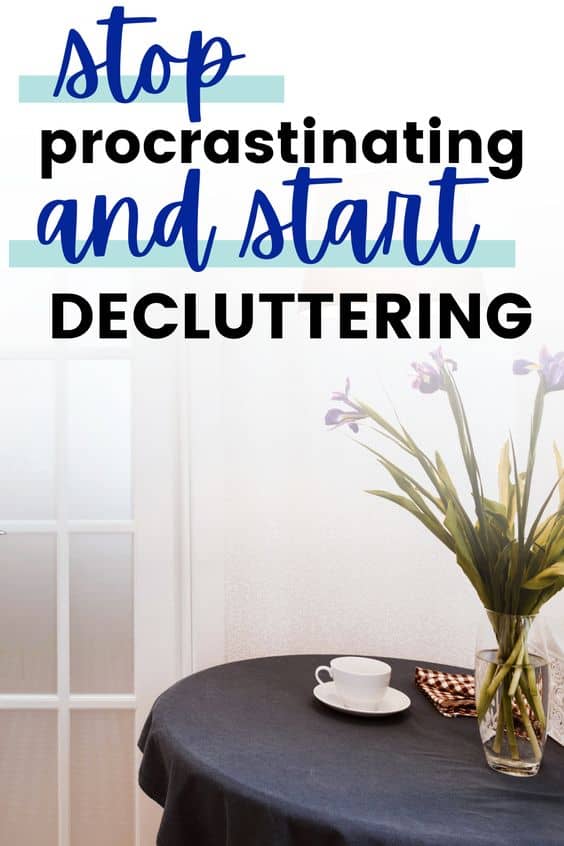
Get the decluttering support you need in my free Facebook group, The Declutter Society
HOW TO KNOW YOU’RE PROCRASTINATING?
Let’s get one thing clear: procrastination is not the same as laziness!
Procrastinating involves putting off an unpleasant task in favor of something that is more enjoyable. Laziness is more along the lines of inactivity.
Usually, when we procrastinate, it’s because we’re trying to avoid discomfort or stress associated with the task.
But procrastination is more common than you might think. According to Joseph Ferrari, a professor of psychology at DePaul University in Chicago, around 20% of US adults are chronic procrastinators.
So how can you overcome procrastination when you just really don’t feel like facing your clutter? Let’s start with step #1.
STep #1 – DETERMINE WHY YOU ARE PROCRASTINATING
There are dozens of reasons why you might be procrastinating, but I’m going to go over a few of the most common reasons:
- Are you overwhelmed?
- Are you disorganized and don’t know how to get started?
- Maybe you’re a perfectionist and want everything to be perfect before you start?
- Or maybe you have poor decision-making skills?
If you’re faced with too many choices, you’ll avoid them altogether so you don’t end up making the “wrong” decision.
Whatever the reason, focus on exactly why you’re putting off your decluttering session.
Then, once you have a clear understanding of why you keep procrastinating, you’ll be able to determine which solution is best for your specific situation.
Which brings us to step #2.

STEP #2 – SUGGESTIONS TO STOP PROCRASTINATING
There are many ways to overcome procrastination. But today we’re going to focus on solutions that will help you face your clutter problem. I suggest starting with one of the following strategies. If it doesn’t work well for you, choose another one from this list!
- Focus on the long-term benefits of decluttering
If you’re aiming to declutter your bathroom, instead of saying, “Gosh, I really need to clean this bathroom out”, focus on how nice it will feel when you walk in there and can instantly find what you need.
Or think about how satisfying it will feel when you have a beautifully decorated bathroom that you accomplished all on your own.
- Picture what the decluttered space will look like
Instead of picturing a particular room in its current state (a cluttered mess), picture exactly how it will look when it’s completely decluttered.
Imagine the end results every time you think about your decluttering project and you’ll be less likely to think about how difficult it will be.
- Alternatively, focus on the consequences that will happen if you let your clutter pile up
Remind yourself what will happen if you never get around to decluttering that particular space.
- You won’t be able to use that area of your home to your full advantage.
- You might waste money buying duplicates of items that you already own but are unable to find.
- Insects and rodents might ruin all of your belongings. (Gross, I know. But critters are one of the drawbacks of too much clutter.)
- Reward yourself
By convincing yourself that you can have a reward once you’ve decluttered an area of your home, you just might be able to bring yourself to get started.
It can be something small like your favorite dessert or a new blouse. Or something larger if your budget allows.
Or if you’re a chronic procrastinator, try rewarding yourself for each small victory, or every step complete25
- Use peer pressure!
Ask a friend or family member to keep you in line. Have them check in on you to see if you’ve started decluttering.
- Rephrase your internal dialogue
Phrases like “I need to” and “I have to” imply that you have no control over your actions. This can make you feel powerless. Instead, try using the phrase, “I choose to”.
By choosing to do something instead of doing something that you have to do, you will feel more in control of your workload.
- Try to avoid decision-fatigue
Decision-fatigue is what happens when you are forced to make too many decisions over a short period of time.
Given the estimate that the average adult makes 35,000 conscious decisions every single day, it’s easy to see why some people have a tendency to let things pile up in their homes – by the end of the day, they are simply tired of making decisions.
By realizing that clutter is unmade decisions, you can instinctively break the cycle.
Some key points to remember:
- Piles surface because of the choice to make a decision later, as opposed to right away.
- Eventually, your house will become full of unmade decisions. And then your clutter will seem impossible to tackle because you’ll have too many choices to make.
- Being aware of when you run out of steam and are done making decisions for the day can help you decide when to declutter.
- Maybe you have a lot of choices to make during your workday, so the last thing you want to do is come home and make one more decision. Instead, you can work on your decluttering project first thing in the mornings or on the weekends.
- You can also use this knowledge to prevent your house from becoming even more cluttered in the future. By actively choosing to check your mail in the morning or pay bills on the weekend, you will lessen the likelihood of decision-fatigue during important household duties. (Which might lead to fewer paper piles on your kitchen counter!)
- Break down your decluttering project into manageable tasks
After you decide on an area that you want to declutter, divide the space into zones. Almost every room in your home will have 3-5 different zones, so instead of choosing to declutter your bedroom, start with one particular zone such as your nightstand or your dresser.
If it’s a larger area like a garage, work through one 3X3 area, one box, or piece of furniture at a time.
Take it a step further by scheduling a 30-minute decluttering session on your calendar, hiring a babysitter, and creating a plan for what you will do with your unwanted items.
But don’t try to memorize every step of your decluttering project…
- Write it down
By writing down which areas you need to declutter, you will bring your decluttering project front and center and make it more tangible.
Psychologists from the Procrastination Research Group at Carleton University in Ottawa believe that procrastination is an emotion regulation problem.
So while decluttering a dirty bathroom might be unpleasant, your procrastination could actually be the result of deeper feelings related to the task, like anxiety, insecurity, or self-doubt.
In other words, procrastination is a way of avoiding your emotions. Instead of avoiding them, try to understand them.
Start by noting how you feel when you actively choose to put off dealing with your clutter. Ask yourself, “Why am I avoiding this? Why do I keep putting off decluttering this space?”
Then, try to understand where those negative emotions are coming from.
Once you have a better idea of the emotions associated with your procrastination, attempt to turn them into positive feelings by supporting and forgiving yourself.
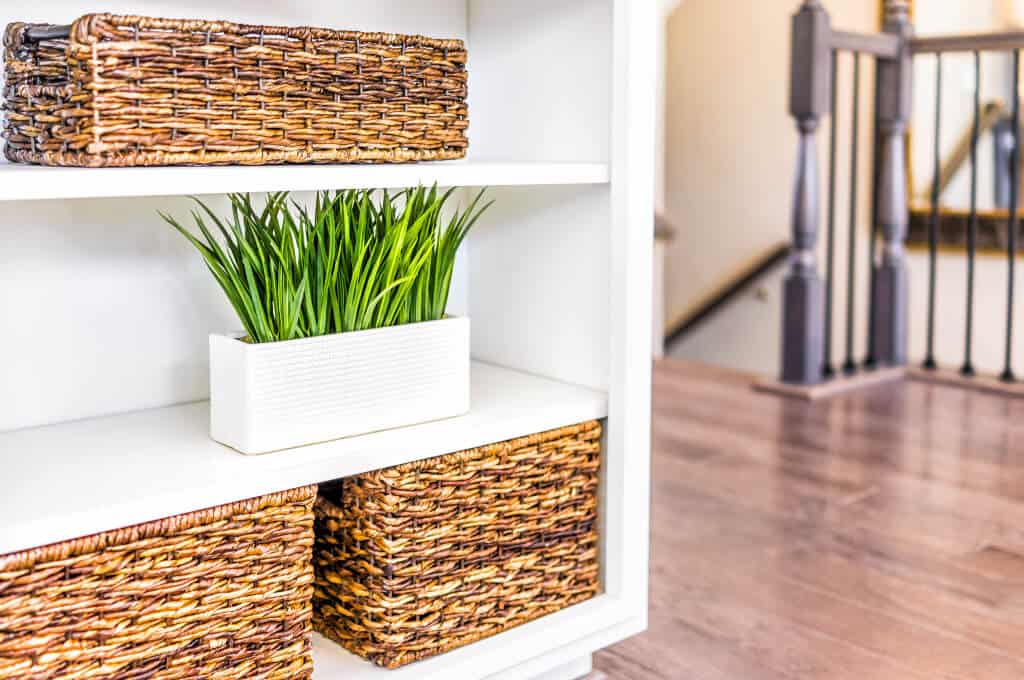
STEP #3 – BREAK THE HABIT + STOP PROCRASTINATING
Procrastination is a habit. One you’ve probably been practicing for years since you were in high school.
And we all know how hard it can be to break habits. It won’t happen overnight! But there are a few things you can focus on to help break the habit long enough to start decluttering.
Forgive yourself
Try to forgive yourself for the times you procrastinated in the past
Self-forgiveness is an excellent way to boost your self-esteem and possibly reduce the chance that you will procrastinate in the future.
A 2010 study found that when students were able to forgive themselves for procrastination before one exam, they procrastinated less before future exams.
Even if you’re not a student, this strategy can still work for you; especially if you’ve been avoiding your clutter for awhile.
Replace negative thinking
What negative thought pops into your head when you think about decluttering?
Replace that thought with a truth that contradicts it.
For example, maybe when you think about decluttering, you think to yourself how tired you are and how little time you have.
The next time you consider your decluttering project, try saying to yourself, “I have 30 minutes to tackle my bathroom cabinet tomorrow” or “I can devote 1 hour to my garage this weekend”.
Do you notice the difference in the positive statements? Your mindset can truly make a difference!
IF YOU’RE STILL PROCRASTINATING
If the solutions above don’t bring you any closer to conquering your decluttering project, there’s a couple of alternative solutions you can try.
Beat the overwhelm
Clutter can be extremely overwhelming.
It can be hard to know where to start when every room in your house is a cluttered mess.
To help banish overwhelming feelings, read How to Declutter When You’re Overwhelmed.
Get organized
If you’re too disorganized to conquer your clutter, treat your decluttering project like an assignment.
Use a free task management system like Trello, Asana, or ClickUp to break up your project into individual tasks. For each task, assign a deadline and list out the next actions.
Try using a more creative approach to help you get rid of your clutter
Check out 11 Creative Ways to Get Rid of Your Clutter for outside-the-box techniques like giving away one item each day.
Overcome perfectionism
Trust that you have everything you need to get started and accept that it will never be perfect.
You can also try to trick your mind. Tell yourself that you’re going to get your supplies ready but you’re not going to actually start. Once you have your area set up and ready, you may end up devoting a few minutes to your clutter after all.
Click here for more information about the perfectionism-procrastination loop.

AND IF ALL ELSE FAILS
If you find none of the above ideas have helped you overpower your clutter and you’re still procrastinating, there’s one last thing you can try.
Just jump right in. Literally.
Don’t worry about the mess you’ll make.
Don’t focus on the fact that you might not ever finish.
Choose one area to start with, like a bookcase or a kitchen drawer.
Don’t put much thought into this. Any thought you put into it beforehand will only contribute to your procrastination. You’re aiming for mind over matter.
Next, make the decision to walk up to your chosen area and pull everything out.
Tell yourself that you’re just going to pull everything out and will sort through all of the clutter “later”.
By pulling everything out of the space and telling yourself that you will declutter each item later, you will have accomplished the first step – breaking through the procrastination.
You just might be surprised at how compelling it feels to finish decluttering that initial area right away!
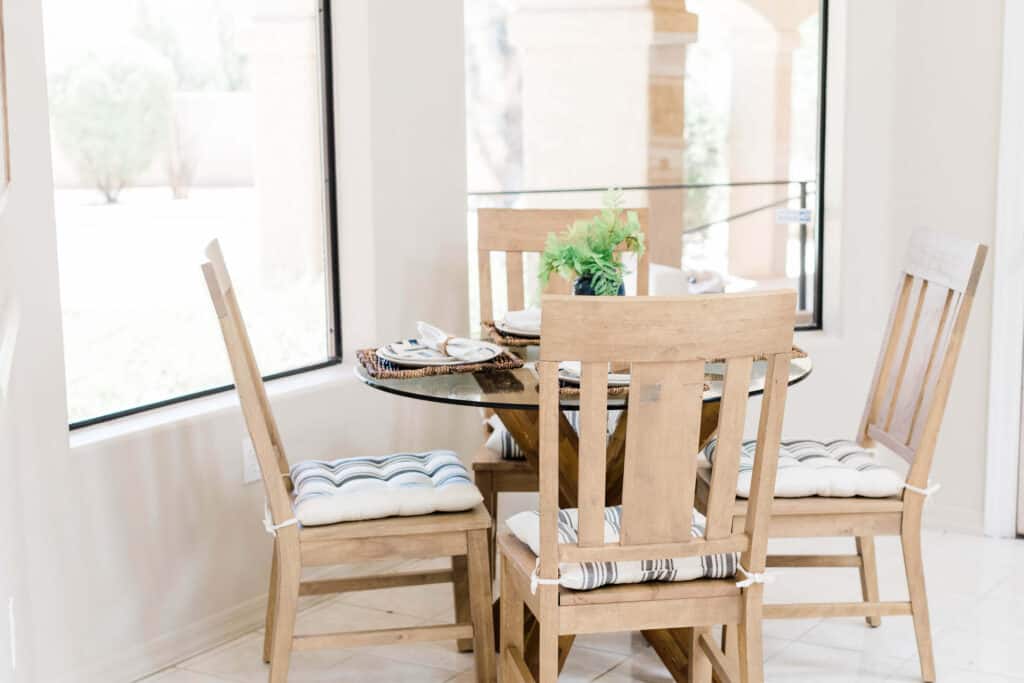
FINAL THOUGHTS
Procrastination has the potential to help some people (namely students) work under pressure.
But without a deadline, you have no pressure with which to force you to complete your project. In other words, when you’re putting off a task at home that doesn’t need to be completed in a certain amount of time, you could end up putting it off indefinitely.
The clutter in your home is no exception.
You might be able to hide your clutter when you have guests come over, but shuffling it from room to room won’t help you in the long run.
We all know how beneficial and desirable a clutter-free home can be. Decluttering your home and your life can provide balance, peace, happiness, health, and freedom.
So instead of putting off your clutter until tomorrow, get started today by trying one of the suggestions from this post. And if you’re ready to get rid of your clutter and create a home that you are proud to live in, enter your name and email below to grab a copy of my free Start Decluttering Checklist! 👇
Related posts
How to Declutter When You’re Overwhelmed
11 Creative Ways to Get Rid of Your Clutter
How to Sell Your Decluttered Items Online
How to Schedule a Donation Pickup for Your Clutter
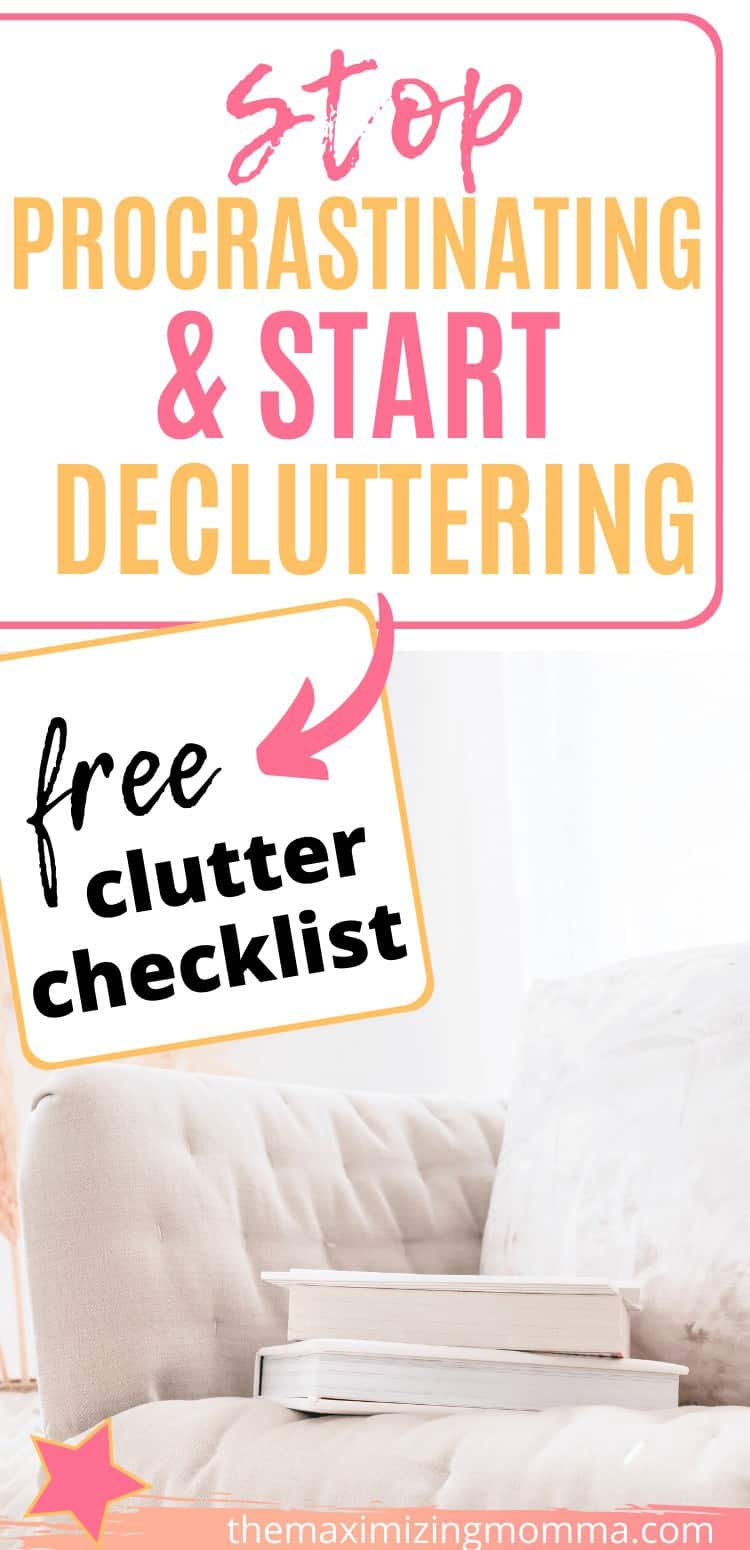
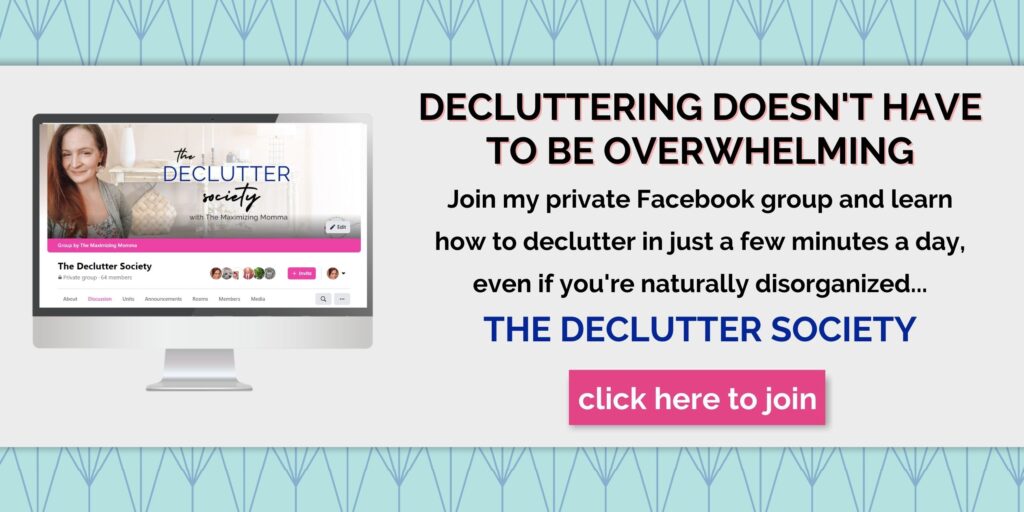
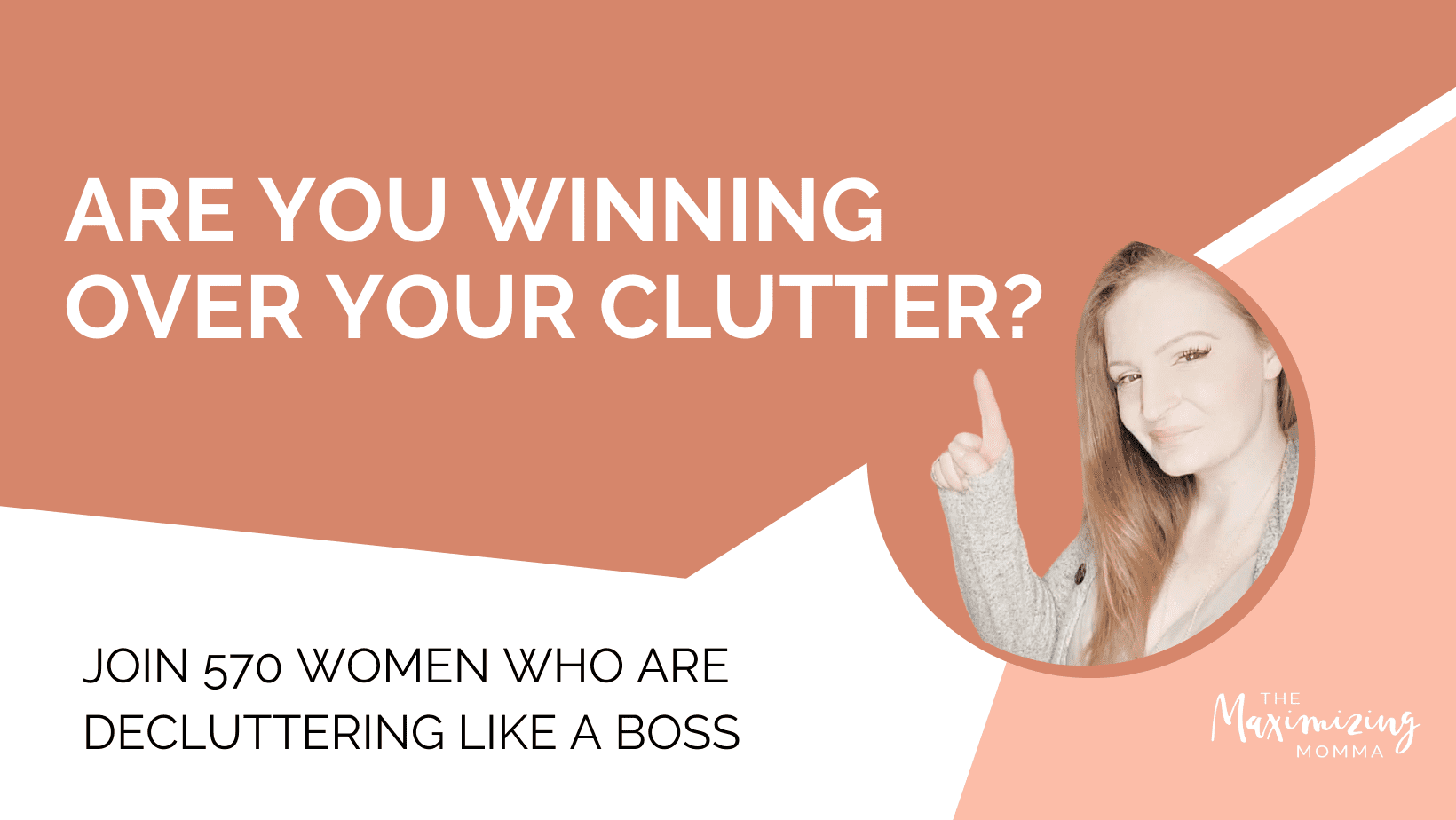
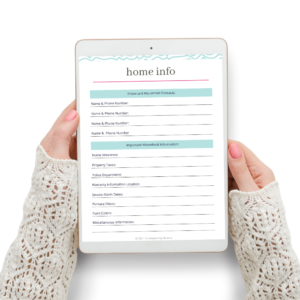

Leave a Reply
You must be logged in to post a comment.